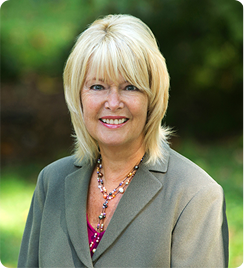
Current advice preaches staying aware in the present, being mindful of all that evolves now. However, creating a master plan or future vision guides us in our daily decision making.
Having life goals or dreams can take different forms. Some people think in long term goals, others focus closer in. Some like spontaneity and others prefer a planful approach. Without a plan we tend to drift and lose touch with what is most important to us.
As a Career and Life Coach, I ask clients to design 90 day, 1 year and 5 year goals. For some the exercise is easy. For others a longer term time frame is hazy. Perhaps giving yourself permission to dream big is a beginning.
While my life has progressed organically toward my passions and values, I hold some clear aims to accomplish. One was just achieved after over 40 years of execution. Finally reaching a long term lifestyle goal can be satisfying and amazing. It can also lead to more life review and discernment. What’s next?
Growing up in Minnesota, I became accustomed to cold and snow about 6 months out of the year. Now I don’t know how the current Minnesota weather is, but in the 50’s and 60’s it was a long winter. I left Minnesota to attend college in Southern Wisconsin. Not much change there. But in my sophomore year I studied and worked in Bogota and Medellin, Colombia. A change was coming, along with more information.
People used to ask me how I survived the cold in Minnesota. I couldn’t answer because I didn’t know anything else until I lived in Colombia. Medellin is known as the City of Eternal Spring and is it gorgeous there. Now this was more like it for me. I had found my sunshine and warmth as well as foreign intrigue.
Now that I’ve lived most of my adult life in Northern Virginia, I still don’t like winter, even a milder form. I long for a break during the most difficult months of January and February and I still love to experience the world.
With young children it was difficult to get away except for their school vacations. But once in a while, I’d take a long weekend to Florida. One year I even did a month volunteer project in Thailand. I found a way, however brief, to meet my winter needs with breaks and adventure.
Once the children were launched, I took 2 week winter vacations to various hot spots around the world. Subsequently having my own business, the escapes evolved to 2 weeks in January, come home and 2 more weeks in February. I later found ways to coach while traveling internationally. Now this was working pretty well for my goals.
But in 2018 I totally reached my goal of 2 winter months in the warmth. And since I’m still interested in seeing new worlds, this year was Southern South America.
Even though achieving my goal took many years, I pulled it off and did it step by step. I see how seemingly impossible, long term dreams can be fulfilled through focus and determination. This success gives me confidence in setting new goals that at first seem overwhelming. I am so pleased with following my interests and being creative in the execution of this plan, that I can’t wait for the next one.
Susanna wants to become a children’s book author. She loves to write and took English literature in college. Her jobs to date haven’t included much writing, but they pay her bills. Still this ache to write fiction dwells within Susanna. She’s not willing to give up her dream. So she creates a plan of action to take writing courses, practice her writing, join a community of writers and volunteer to edit and research for established authors. While Susanna is not yet published, she is immersed in the world of writing. She follows her deadlines of production and submission and grows her skills and portfolio.
So what’s on your list? Have you dared to do some “out of the box” dreaming? All it takes is self awareness, a vision, identifying the steps and execution. Make room for review and reward and you’ll be on a good track.
“Our goals can only be reached through a vehicle of a plan in which we must fervently believe and upon which we must vigorously act. There is no other route to success”
Pablo Picasso
Ready to commit to a lifelong dream?
Set your start date for action
Outline the steps
Find an accountability partner
Get in action
Smile at your courage
Full speed ahead and see you on the path!














